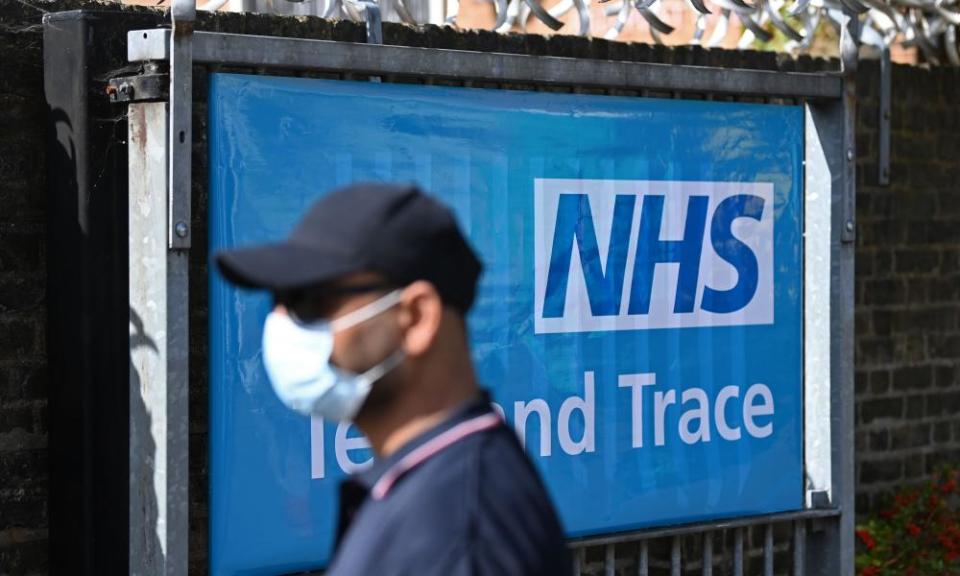Data glitch 'may have led to more than 1,500 Covid deaths in England'

An Excel spreadsheet error that wiped nearly 16,000 English Covid cases from national statistics may have led to more than 1,500 preventable deaths, according to a paper from Warwick University.
Cases that were removed from the record due to the spreadsheet error were also not referred to the NHS test-and-trace operation, meaning people who had been exposed to a Covid sufferer were not told to self-isolate.
An analysis of the data suggests those missed referrals are associated with more than 125,000 additional infections, and 1,500 Covid-19 deaths.
Thiemo Fetzer and Thomas Graeber, economists at Warwick, uncovered the effect thanks to a statistical anomaly in the data. Different parts of England were affected by the error to different degrees – and the number of cases they lost, the academics say, is random enough to treat the error as a “quasi-experiment”.
default
That means the outcome can be analysed as though some areas were randomly assigned less-effective contact tracing, with others acting as a control group. By comparing the two groups, the paper estimates how effective contact tracing was at saving lives, and how many lives may have been lost due to the error.
“The specific failure of timely contact tracing due to the data glitch is associated with something between 126,836 (22.5% of all cases in the post-treatment period under consideration) and 185,188 (32.8%) additional cases,” they conclude, “and with between 1,521 (30.6% of all deaths) and 2,049 (41.2%) additional Covid-19-related deaths”.
The researchers do, however, “advise caution against taking these effect sizes at face value” due to the complex structure of the pandemic.
“Policy wonks like me often complain that government doesn’t do enough rigorous randomised trials of policy interventions,” said Jonathan Portes, a professor of economics at King’s College London. “This paper argues that a spreadsheet error in the contact-tracing system is the next best thing.
“The good news – if indeed the authors are correct that this was a purely random event – contact tracing really works, and is vitally important to stopping the spread of the virus. The bad news – this one error may have indirectly killed about 1,500 people, and implicitly government delays and failures in contact tracing may be responsible for many more deaths.”
Public Health England disputed the findings. Isabel Oliver, the director of Public Health England’s national infection service, said: “These are misleading estimates. It’s not appropriate to conclude that an increase in cases and deaths at the time was caused by this issue and the authors themselves accept that there is low confidence in their conclusions.
“Our own analysis of the data suggests that the delay in the upload of data files coincided with the increases in cases linked to the return to university and the epidemiological trends we were already seeing in parts of the country.
“Every person received their test result as they would at any other time along with advice to self-isolate. The national guidance states that people with symptoms and their households should immediately self-isolate. In practical terms we know that most close contacts are household contacts, so they would have been aware of their need to isolate.
“The majority of cases affected by this issue were also contact traced within five days, which means it is unlikely the delay led to their close contacts transmitting the virus unknowingly given typical incubation periods.”
The lost cases were the victims of an error in the process by which PHE compiled the national data set by reports from individual testing centres. The data was taken in “CSV” format, a very simple file type, and then exported into the Excel spreadsheets that could be handled by the body’s database.
But the process involved saving the files into an outdated version of the Excel file format, retired in 2013, which could only handle files with 65,536 rows. As a result, any extra data was cut off from the bottom of the sheet – an error that cumulated over the end of September and first two days of October to lose 15,000 cases.
Fetzer had previously produced research estimating the government’s flagship eat out to help out scheme may have led to a sixth of all Covid clusters over the summer. “The scheme may have indirect economic and public health costs that vastly outstrip its short-term economic benefits,” he concluded.

